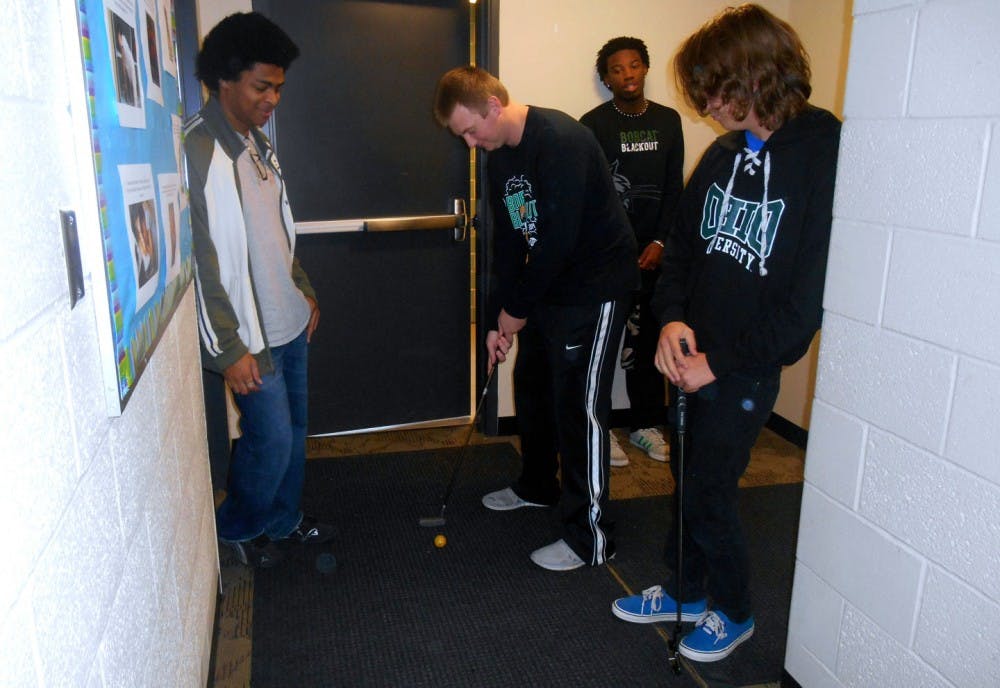Nearly 2,300 OU students don’t drink and Sober Bobcats is trying to unite them.
“You don’t often hear the word ‘sober’ in front of Bobcats.”
That statement from Ann Addington, Ohio University’s assistant director of Health Promotion, is largely supported by university statistics. About 14 percent of students at OU don’t drink, according to the 2014 Alcohol and Other Drug Survey.
“People who don’t drink on this campus either have crazy self-control, excellent morals or are deathly afraid of getting in trouble,” said Patrick Wilson, a junior studying finance.
Because the group of students who stay sober is relatively small — nearly 2,300 individuals — Addington felt there was a need to help those students band together.
Thus the group Sober Bobcats was born.
The student organization formed this semester with a $2,500 grant from Transforming Youth in Recovery, a national organization, and aims to connect sober OU students.
Sober Bobcats is a “win-win” because it gives sober students support while improving OU’s image, Addington said. The idea for the group came after Addington, who already works with students recovering from alcohol and substance abuse, wanted to extend her office’s services to all students who choose a sober lifestyle.
The group had its first meeting Sept. 22; 28 students attended the first meeting, and 10 others expressed interest, Addington said.
The group holds weekly meetings every Monday from 6 to 7 p.m. in Baker University Center Room 242.
One member of the group, Kristen Frase, a freshman studying media arts and studies, said it has been hard to find people at OU with similar interests.
“A lot of my friends like to party so it has been difficult to find things that we can all do together,” Frase said.
Riley Carpenter, a sophomore studying organizational communication and a member of both Sigma Kappa sorority and Cru, said being sober at parties can be awkward at times and requires a lot of confidence.
“I mean how could it not be (awkward),” she said. “You’re dancing sober as-all-get-out with a bunch of people who are in a completely different mindset.”
Students who live in OU’s substance-free hall Shively on East Green go ice-skating, have movie nights and play putt-putt golf in the hallways.
“It’s controlled fun,” said Melissa Butts, a sophomore studying integrated language arts who is living in Shively for the second year.
Butts said she thinks the environment in Shively is different than in other residence halls, where freshmen might feel pressured to drink.
Sober Bobcats collaborated with R.I.S.E. — the collegiate recovery community at OU — for a sober tailgate during Homecoming Weekend.
“It’s like a social movement,” Addington said.
Other Ohio universities have been also been taking measures to increase sobriety on campus.
At Ohio State University, there are the Buckeyes for Recovery. At Miami University, Bacchus aims to develop responsible habits and attitudes toward high-risk health and safety issues.
And at Kent State University the Phi Delta Theta fraternity hosts an annual “Soberfest” — a sober philanthropy event to raise money and awareness for ALS.
@worldofjenks1
ej966012@ohio.edu






